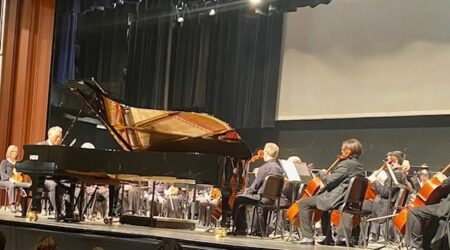Hebrew for the Soul
I decided to learn French when I cracked open a copy of War and Peace that had been given to me for my thirteenth birthday and noticed that approximately half of it was in French. The curious future-traveler in me enjoyed the daily escape French class offered and the pretentious thirteen-year-old enjoyed the prospect of reading […]
I decided to learn French when I cracked open a copy of War and Peace that had been given to me for my thirteenth birthday and noticed that approximately half of it was in French. The curious future-traveler in me enjoyed the daily escape French class offered and the pretentious thirteen-year-old enjoyed the prospect of reading lofty books in two languages.

The inspiration for studying Italian came through the seductive melodies of a singer whose songs my dad sang to me as a child. I realized that I wanted to understand what he was singing and that this knowledge was within my reach. I took classes, traveled abroad, and changed my life.
Learning Spanish was a no-brainer. I had a solid Romantic foundation, so it would be easier to learn and it seemed like the first practical language I would study. Finally, as my grandma insisted (a grandma who often thought I should’ve attended a Chinese immersion school as a child)—a language I could really get some use out of!
But Hebrew – that was always in the back of my mind. It was a language I’d thought about ever since I became better-educated on politics as a pre-teen during the Second Intifada. I thought about it the more I learned about Judaism and undid the generations of Soviet religious repression my family went through. I even learned about the rebirth of Hebrew. And yet, I never found time to study it. I had found frivolous reasons compelling enough to study other languages, but despite the heavy emotional connection, I didn’t take up Hebrew.
Last year, I finally took the Birthright trip to Israel that so many of my friends and acquaintances had taken before me. I knew the history of Israel and the itinerary of the trip and some overly-zealous friends had even told me exactly where and when I’d be crying, so I knew that too. The only thing I didn’t know was Hebrew. I could say ‘’Hi’’ and ‘’How are you’’ and I learned the much-needed ‘’Excuse me’’ but standing in a crowded marketplace, alive with the brisk footsteps of shoppers preparing for Shabbat, I felt both like an insider and an outsider. A rabbi had just hurriedly shoved some candles in my hands because I had presumably looked like the kind of Jew who isn’t prepared – an outsider. But at least he knew I was Jewish – insider. Everyone was busy with lives and rituals I knew so little about, but at least I was on the way to the first Shabbat dinner of my life. All these people are mishpacha – family – but what good is family if you can’t communicate with them?

I spent a week living with my uncle in Ashdod and learning a few very basic words. Staying in a house with two girls – a teen and a pre-teen – I learned the words for ‘’How do you say in Russian’’, ‘’What?!’’, and ‘’No!’’ with extra sass included. On the ‘’exit interview’’ in the airport, where a stern young Israeli woman grilled me about my Jewish-ness to determine whether I’m lying, she asked whether I speak Hebrew. I smiled sheepishly and informed her somewhat proudly that I could count to ten. That was the only moment she nearly cracked a smile.
Now, more than a year later, I am finishing up Hebrew level two. I have learned that the word for man is adam, that Hebrew might be written right to left because it’s easier to chisel into stone tablets, and that Israelis live in the present (on account of that being the main tense they use), among many other humorous and delightful insights from our teacher, Niri Zach, at the Jewish Community Center. Of course, I can also have a basic conversation with you, assuming you are particularly interested in where I live, what I hope for, and what I eat for breakfast. I can also count to a thousand.
A month or so ago, I excitedly made sense of my first non-textbook Hebrew sentence. Progress has not been quick for me. There is no help from the Romantic languages rattling around in my head, telling me to blurt out Si! instead of Ken! and no, this isn’t going to be as practical as Mandarin. But I get a quiet satisfaction every time I crack open my textbook or mumble a new phrase under my breath – a satisfaction that this language is bringing me one step closer to who I’m meant to be, one step closer to my mishpacha. And when I eventually get to that family reunion, I want to be able to announce, Shalom! and finally understand the response.
Tatiana Sundeyeva-Orozco has gotten into the terrible habit of thinking too much about everything. She enjoys fantasizing about traveling, compulsively buying literature, laughing at her own puns, and consuming anything and everything that can be found in a bakery. She is a graduate of UC Berkeley where she got a degree in English. She can be found celebrating awesome female friendships on LadyBromance.com.
By Tatiana Sundeyeva-Orozco





